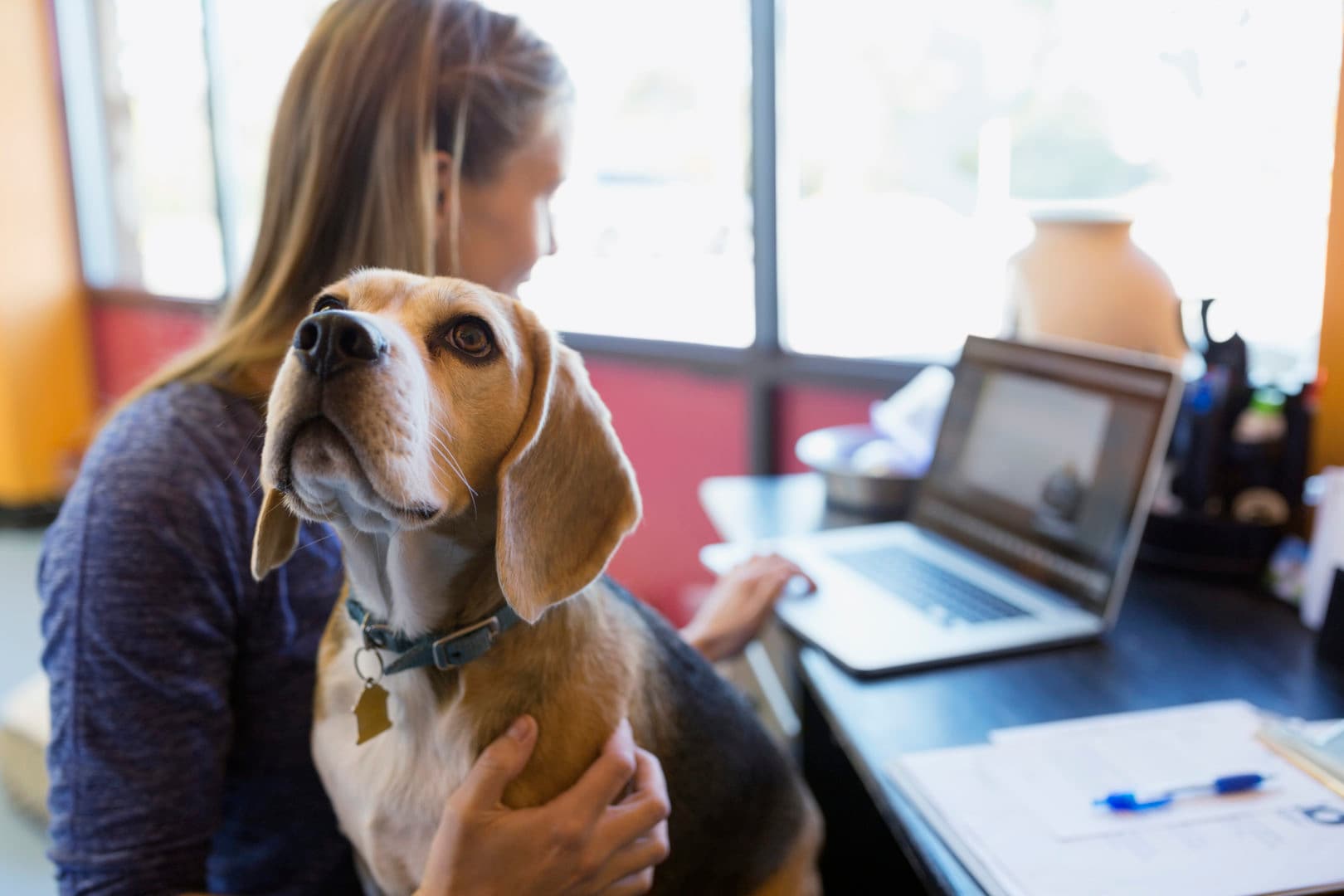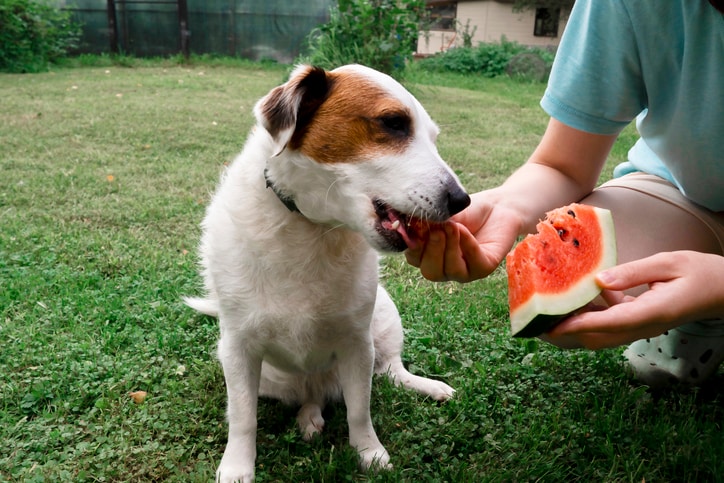If you’re a dog owner actively seeking pet care, zeroing in on that special someone to take care of your pooch can be daunting, especially if you have high standards like most of us do. However, once you know what to look for, finding the perfect caregiver will feel a whole lot easier.
Beyond basics, like trustworthiness and pet sitting insurance (which are likely a given when it comes to protecting your most precious possession), there are several qualities to look for in a pet sitter to help ensure the partnership is harmonious and the best situation for your furry friend.
Start by trusting your instincts. If you’re not vibing with the pet sitter you’re interviewing for the job, maybe there’s a reason for that.
“Go with [your] gut,” says Cynthia Okimoto, the founder and owner of New York Dog Nanny, which has offered pet sitting services for cats and dogs for the past 11 years. “Whether I’m looking at someone’s [online] profile or they come in person, I always [ask myself], ‘What’s my gut telling me?’ If it’s neutral or good, you know, green light. If there’s any sort of confusion or hesitation, it’s a no-go.”
Here are several more expert suggestions for qualities to look for in a good dog sitter.
1. A desire to get to know your pet
You love your pup to the moon and back, so sensing that your potential pet sitter has a genuine interest in getting to know your little love is definitely a game changer. A natural connection with animals is a positive trait to see, so Okimoto suggests asking yourself, “Are they curious about my pet? Do they say they love dogs, but they come in and they don’t even acknowledge my dog?”
A complimentary meet-and-greet with a potential pet sitter is good practice, says Alexis Hamm, the owner and founder of Pawlosophy, a Chicago-based dog walking and pet-sitting business that was established in 2010. So if it’s offered, definitely take them up on it, and see how they interact with your dog.
2. A strong resume
Asking for a pet-related resume — or even a non-pet related resume — is good practice and can definitely help you get a better picture of who your pet sitter is. Call previous employers listed on the resume to confirm employment, get recommendations from people they’ve worked with and sweep social media to check out their digital presence.
A pet sitter with experience will definitely offer more peace of mind in the long run. A good pet sitter should “be knowledgeable about pet care and have experience,” says Hamm. She also recommends they “have some general knowledge about [animal] behavior.”
3. Open communication
Like any relationship, an open line of communication is key. Are they easy to reach? That’s communication 101. And you should also make sure you feel comfortable talking with your pet sitter or pet-sitting company about any issues related to the job.
“You should feel comfortable going to the manager of the company [or the individual] and expressing your concerns, whether they’re small or large,” Hamm says. “I always tell my clients, ‘If there’s ever a moment that gives you pause, ask the question.’ Because no service provider should be put off by you asking a question that has to do with the well-being of your pet or services you’re paying to receive.”
4. A reasonable schedule
A pet sitter who is overloaded with pet care gigs isn’t going to be able to give 100% to your dog, so find out what the sitter’s workload is like.
“People make mistakes when they’re working 80 hours a week,” Okimoto says. “I myself have made many mistakes — emails, things like that — because I was working too many hours.”
To determine whether there’s a balance, she suggests asking strategic questions, like, “What are some typical mistakes that you’ve made in the past and how did you rectify [that]?”
Hamm recommends working with a pet-sitting company versus a solo pet sitter who doesn’t have a contingency plan.
“Because if something happens to [your pet sitter], who’s going to take care of your pet?” she says. “I cannot tell you how many calls I get around the holidays or even during the regular year, where they’re saying, ‘My pet sitter of five years has been in an accident,’ or ‘They overbooked themselves.’ … ‘Is there any way you can fit us in?’ ”
5. A backup plan
Dogs run off. People get locked out. They get sick. What plans does your pet sitter have in play that will fix those pesky problems when they arise? It’s a topic to discuss.
“The benefit to working with a company like ours is that you’re paying for a management system,” Okimoto says. “If you’re going with a solopreneur or a smaller company, what is their management system like? Things happen all the time, right? Someone loses the keys or somebody quits and walks off with the keys. What is their backup system? And where are the flaws and holes in that system?”
6. Attention to detail
If you’re rattling off details during a meeting with a potential pet sitter, you should be able to glean that they’re on the ball and that things aren’t just going in one ear and out the other.
“I would want to see that the person is taking notes, that they’ve come prepared,” Hamm says. “Your pet sitter or your dog walker should not just be running through the motions with you. They should be able to ask you questions, if they have them, related to your dog’s care.”
7. Consistency
This can be important if you have a pet that’s a creature of habit. Does your dog need to be walked at a certain time? Do they like their food a certain way? A pet sitter needs to understand the importance of that. But it’s also important when it comes to your interactions with them.
“Are they consistent in the way they communicate with me about problems or just updates on my animal?” Hamm says. “Are they consistent in how they reply to me when I’m asking for requests or care?”
It goes without saying that you’re the expert here on what exactly your dog requires, so don’t settle for anything less.
8. Reliability
“At the end of the day, it’s not just about the pet,” says Okimoto. “You’re letting them into your home. You’re giving them the keys. You’re trusting them to follow instructions.”
Okimoto emphasizes that every dog owner should come up with their own vetting system. Ask questions. Expect adept answers. You know what your pet’s needs are, she says, so don’t hire a pet sitter who doesn’t seem capable or willing to meet those needs. Take some time to find the right fit for both you and your best friend.

